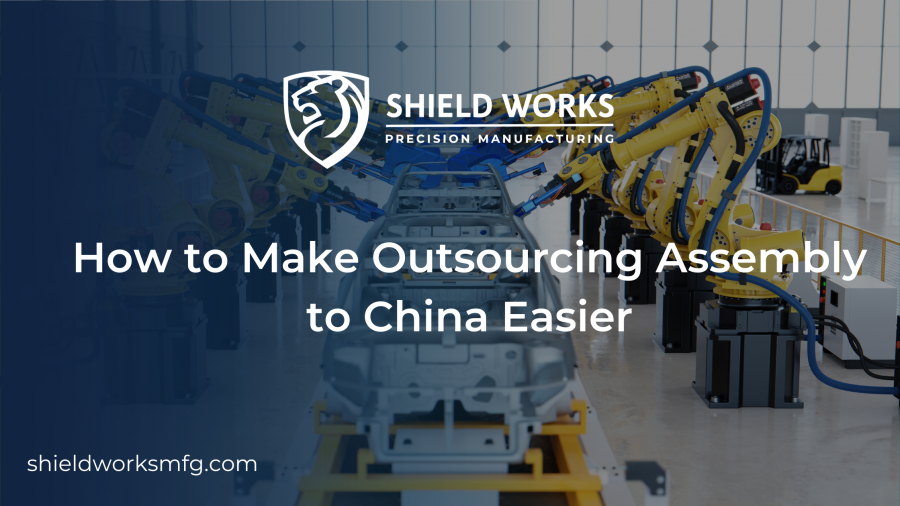How to Make Outsourcing Assembly to China Easier

Outsourcing assembly to China can be a strategic move for businesses looking to streamline their operations and reduce costs.
However, navigating the complexities of outsourcing to China can be daunting without proper guidance.
In this guide, we’ll explore various strategies and tips to make outsourcing assembly to China easier for your business.
Understanding the Benefits of Outsourcing Assembly to China
Outsourcing assembly to China offers numerous benefits for businesses, including cost savings, access to skilled labor, and scalability.
China boasts a vast manufacturing infrastructure and a large pool of experienced workers, making it an attractive destination for outsourcing assembly tasks.
Additionally, outsourcing to China allows businesses to take advantage of economies of scale, leading to lower production costs.
Moreover, outsourcing assembly to China can help businesses focus on their core competencies while delegating non-core tasks to specialized manufacturers.
This can result in increased efficiency and productivity, ultimately driving business growth. By leveraging the expertise and resources available in China, businesses can gain a competitive edge in the global marketplace.
Navigating the Challenges of Outsourcing to China
While outsourcing assembly to China offers significant advantages, it also comes with its own set of challenges. Cultural differences, language barriers, and logistical complexities can pose obstacles for businesses seeking to outsource to China.
Additionally, intellectual property protection and quality control issues are common concerns when outsourcing manufacturing tasks to foreign countries.
To overcome these challenges, it’s essential for businesses to conduct thorough research and due diligence before engaging with a Chinese manufacturer.
Building strong relationships with trusted partners and implementing robust contracts can help mitigate risks associated with outsourcing to China.
Additionally, investing in quality control measures and clear communication channels can ensure that the outsourced assembly process runs smoothly.
Choosing the Right Manufacturing Partner
Selecting the right manufacturing partner is crucial for the success of outsourcing assembly to China. When evaluating potential partners, businesses should consider factors such as experience, expertise, and reputation.
It’s essential to conduct site visits and audits to assess the manufacturer’s facilities and quality control processes firsthand.
Furthermore, businesses should prioritize transparency and open communication when working with Chinese manufacturers. Clear expectations, specifications, and timelines should be established from the outset to avoid misunderstandings and delays.
Building a strong relationship based on trust and mutual respect can foster collaboration and ensure a successful outsourcing partnership.
Streamlining the Outsourcing Process
To streamline the outsourcing process and make it easier, businesses can leverage technology and automation tools.
Project management software, communication platforms, and supply chain management systems can facilitate collaboration and coordination between the business and its Chinese manufacturing partner.
Additionally, implementing standardized processes and workflows can help streamline production and reduce errors.
Regular monitoring and performance evaluations are essential to ensure that the outsourcing arrangement is meeting the business’s objectives and quality standards.
By establishing key performance indicators (KPIs) and conducting regular reviews, businesses can identify areas for improvement and address any issues promptly.
Continuous improvement and optimization are key to maximizing the benefits of outsourcing assembly to China.
Ensuring Compliance with Regulations and Standards
When outsourcing assembly to China, businesses must ensure compliance with local regulations and international standards.
This includes understanding import/export regulations, labor laws, and product safety standards in China. Failure to comply with these regulations can result in legal and financial repercussions for the business.
To ensure compliance, businesses should work closely with legal experts and regulatory consultants who are familiar with the Chinese market.
Conducting thorough due diligence on potential manufacturing partners and verifying their compliance with relevant regulations is essential.
Additionally, implementing robust quality control processes and conducting regular audits can help mitigate risks and ensure that products meet the required standards.
Outsourcing assembly to China can be a strategic decision for businesses looking to optimize their operations and stay competitive in today’s global economy. With careful planning, diligent research, and effective communication, outsourcing assembly to China can become a seamless and profitable endeavor for businesses of all sizes. Partner with an experienced manufacturer like Shield Works will even spare you much troubles, with their expertise and vast network of suppliers. Contact us now!
